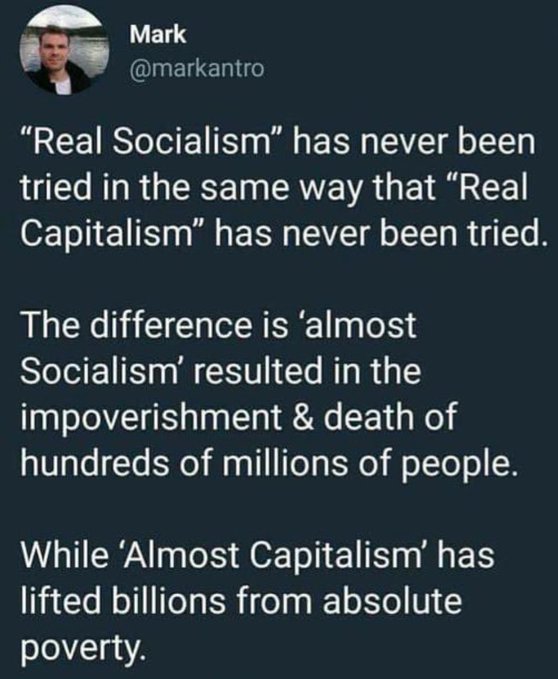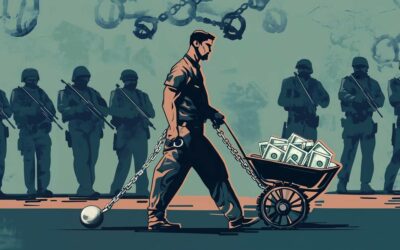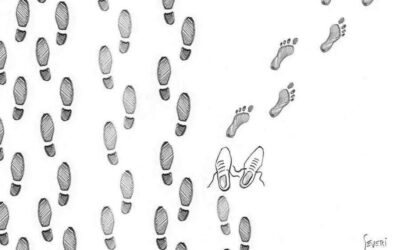As described in part 1 of this post “Democracy takes power from the people“, in current democracies the power resides in “the people” in name only, not in practice. The power has been taken away to “the collective” – to all kinds of different groups who call themselves the “elites”, but in practice are just parasites on the productive society.
To understand how to fix this, let’s first get a different take on the problem, and look at this through the lense of taxation.
Democracy as a financial concept
One of the cornerstones of taking the power away from the individuals to the collective is the excessive taxation, easily going to 75% for a normal middle-class couple.
What is really happening here is that the decisions – power – that this average couple could do with that 75% of their productive output are taken away from them and given to the collective.
This is the antithesis of “power to the people”.
The result of this power transfer is that all the big decisions are left for the parasites, while the normal people are left with the decisions of how to arrange their day-to-day survival – mainly where to live and what to eat (getting to choose from the cheaper end of all options!).
Because they are mostly unable to save, they stay as slaves to this system for the rest of their lives (at least those who are unable to move). You can argue whether this is by design or by happenstance, but the end result is the same: only those who leave can regain full control of their lives.
The solution then for giving power back to the people is quite obvious: end the excessive taxation.
What level of taxation is excessive?
This is the question that the democratic societies have apparently wrestled with for the last 100 or so years, and we can see the results. People can take a lot of financial punishment and apparently be ok with that.
Asking the question “when does taxation become excessive” from the populations of the western countries would be like having asked the average Soviet citizen what amount of control the state should have in their lives? What would be the point of even asking that?
What we should do instead is to try to approach this question from first principles: how do we maintain maximal power to the people, while still having a valid answer for state power?
We could go full anarcho-capitalist and just jump to the conclusion that “the state” should not exist and should have no power, and there should be no taxation. While that would be a morally defensible answer, in our current world it is too theoretical. In practice we should fully expect the existing states to violently oppose those kinds of ideas (and they do – this isn’t theoretical).
The other extreme would be something like North Korea, a totalitarian bubble that can only exist with outside support from other states (mainly China).
Are our current democracies in the middle of that continuum? Perhaps in some sense they are, as North Korea is such a complete hellhole that having even little bit of freedom takes you practically light years away from the psychological torture of living in such a “society” (it really resembles more of a large concentration camp than a society, but I digress).
But what if you look at this from a financial perspective? The other extreme being the anarcho-capitalist dream of 0%, the other being the “Klaus Schwab” / North Korea contrentration camp of 100% and no freedoms.
Where do the western democracies sit on this continuum? They are a lot closer to the 100% than people think (with most of the taxation being hidden).
What if we could get closer to the 0% end with a somewhat large population (10 000+ people) so we get some economies of scale?

The real question isn’t what exact percentage (optimally it wouldn’t be measured it as a percentage at all, but a fixed fee!) should go to maintaining centralized power – hopefully as little as possible, but that’s a side detail.
How to maintain liberty indefinitely without letting it erode away?
The real question is how to maintain the liberty, and therefore the power, of the people without letting it erode like it has in every western democracy?
I think the best theoretical (and quite practical as well!) answer to this question has been proposed by Titus Gebel in his book Free Private Cities. It also doesn’t try to prescribe any hard answers to these questions, but sheds light on how things can work outside the state (a very important thing to think about when reducing the power of the state!) and how we can run different experiments while making sure people’s liberty can’t be taken away.
Reading that book really changed the way I think of politics and the world in generally. You can start with the short version of the white paper of the book to get a general idea. I highly recommend you read it!




0 Comments